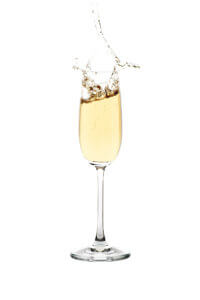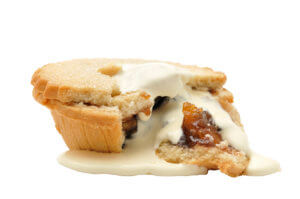Stay Safe and Healthy This Christmas

Christmas is fun – but it can also make you feel tired, bloated and stressed. Here’s how to stay healthy this festive season
Christmas is a time for eating, drinking and enjoying yourself. But that’s after all the stress of preparing, buying presents, parties and late nights. Add all that into the mix and it can leave you feeling less than your best.
With that in mind we’ve got all the best advice to help you stay on top of your game this festive season.
 Alcohol
Alcohol
Teetotallers look away now! For those of us who like a tipple or two, we know how much more alcohol gets consumed at this time of year; office parties, drinks with friends, Bucks Fizz for breakfast, it all adds up – and your liver knows about it!
Your liver can only process one unit of alcohol every hour – half a medium glass of wine. So the quicker and more you drink, the more likely you are to overload your liver and end up feeling awful.
Before you go out, take some milk thistle. This herbal remedy helps your liver process the booze more quickly. Also eat something to absorb some of the alcohol, such as a plate of scrambled eggs or a glass of milk.
Pace yourself – start with a soft drink, and try to alternate between soft and alcoholic drinks, or add sparkling water to your wine. You’ll thank us for it in the morning!
Before bed, drink a couple of large glasses of water and, if you have some, pop a Berocca in one of them.
Try your hardest to have at least two, preferably three, booze-free days in a row every week, to give your liver a rest before you start all over again.
Hangover cure
According to ONS figures for 2010-11, Brits drink a whopping 41% more in December than in the average month. That’s a lot of booze! Help your body get rid of toxins and get through the day with one of these ‘cures’:
- Drink plenty of water or juice. Most of the symptoms of a hangover are caused by dehydration. Sugary isotonic drinks will also help
- Avoid a greasy bacon sandwich or fry up. Eat light foods such as soups and plain rice
- Avoid ‘hair of the dog’. It will only delay the onset of symptoms
Avoid overeating
 It’s not just the amount of food that’s eaten at this time of year – it’s the fact that much of it is really rich. Mince pies, chocolates, Christmas cake, Christmas pudding – it’s all a bit much for your poor digestive system. Short of steering clear of the buffet table, there are things you can do to help your tummy cope.
It’s not just the amount of food that’s eaten at this time of year – it’s the fact that much of it is really rich. Mince pies, chocolates, Christmas cake, Christmas pudding – it’s all a bit much for your poor digestive system. Short of steering clear of the buffet table, there are things you can do to help your tummy cope.
- Peppermint tea has a powerful antispasmodic effect and helps the body dispel gas
- Activated charcoal – taken an hour before eating, helps the body eliminate toxins
- Probiotics are friendly bacteria to help the gut
- Take antacids to neutralise acids
- Ginger stimulates your digestive system and creates enzymes to help break down your food. Ginger tea or biscuits will help
Keep active
As tempting as it is, sitting around and not getting your heart rate up will leave you feeling tired and lethargic – not to mention it won’t burn any of those extra calories!
Try and get out in the fresh air – take a walk, or get your bike out. It will get your blood pumping, increase energy levels and reduce your stress.
SAD
Seasonal Affective Disorder, or SAD as it’s also known, affects one in 15 of us according to the NHS. It’s due to a lack of vitamin D. Your body tops up its levels of vitamin D in the sunshine, so by the time December rolls around you’re often lacking. Try and get out in daylight hours and eat foods which contain vitamin D, such as fatty fish including tuna and salmon; fortified foods such as cereals; and dairy products, cheese and egg yolk.
Stay hydrated
It’s easy to become dehydrated – alcohol leaches fluid from your body, as does central heating, which can leave you feeling tired and your hair and skin looking and feeling terrible.
Avoid colds and flu
Keep your immune system healthy by eating plenty of fresh fruit and vegetables: lemons and oranges are packed with vitamin C, although red peppers are even better; garlic helps fight infection, as does broccoli, live yogurt and turmeric.
Find some ‘me’ time
It’s hard to carve time out for yourself, but it’s essential if you don‘t want to burn out by Christmas Day. Even if it’s just enjoying a hot bath in the evening, make time.
Christmas Tree Syndrome
If you suffer from an itchy nose, watery eyes, coughing and shortness of breath every year, there’s a chance you’re allergic to your Christmas tree! It’s caused by mould that grows on the tree, and the spores enter the air. If you’re allergic to mould spores then it can make you ill. Try taking the tree outside and hosing it down. Leave it to dry and then avoid touching it – get someone else to hang the lights on it. If you’re still suffering, it might, sadly, be time for an artificial one – see our guide here.
The dangers of Christmas!
Trips to A&E soar over the festive season, according to the National Accident Helpline.
- 10% of people burn themselves with fat from cooking turkeys and roast potatoes
- One in five manages to cut themselves chopping veg
- 3% give themselves an electric shock from badly wired lights
- Amazingly, one in 50 people fall from the loft trying to get the decorations down
- Every year more than 1,000 people are injured by their Christmas tree
Stay safe:
 Check fairy lights and cables before switching them on
Check fairy lights and cables before switching them on- Turn off all lights before you go out or to bed
- Unplug lights before watering the Christmas tree
- Avoid chairs and stools for high-up decorations, and use a step-ladder
- Make sure lights used outside are suitable for external use, and keep the plugs and transformers indoors
- Don’t be tempted to overload electrical sockets
- Keep cards and decorations well away from fires and heaters
- Check the turkey defrosting and cooking times carefully to avoid food poisoning
- Holly and mistletoe are poisonous so keep them well away from children. Just 20 holly berries could be fatal.
www.national-accident-helpline.co.uk

